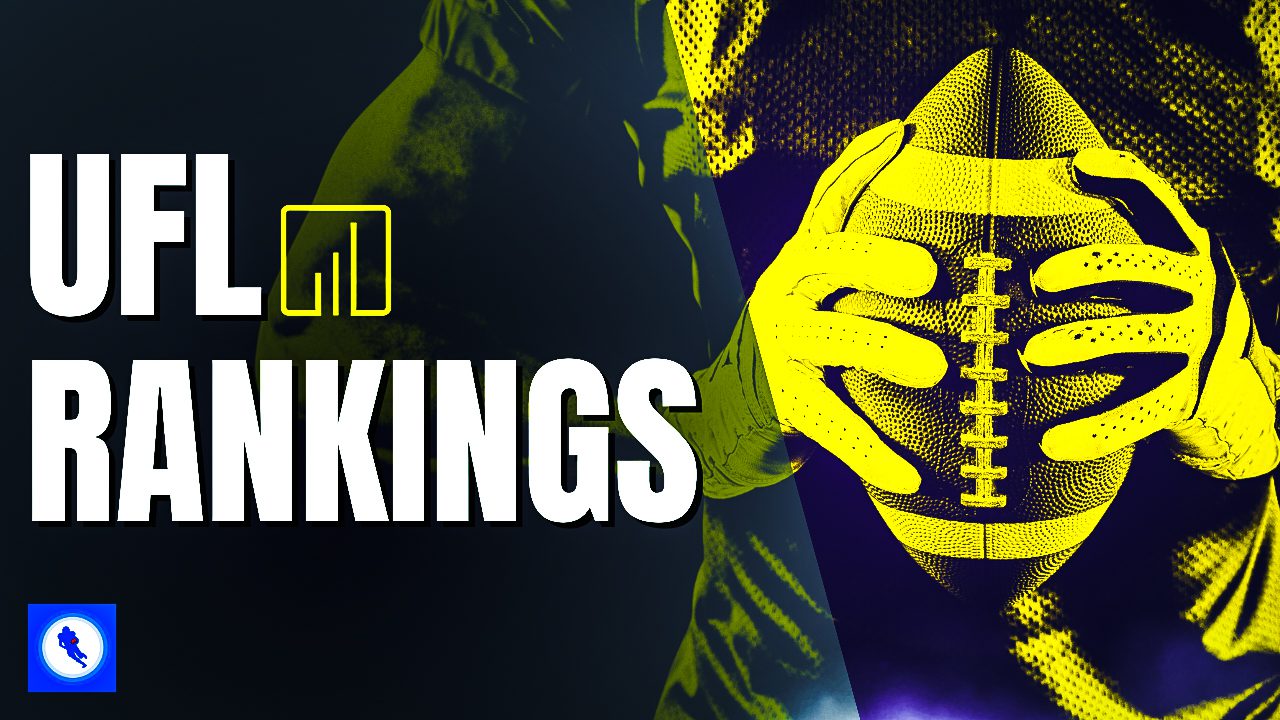Phil Clark looks at Las Vegas Raiders tight end Darren Waller and his dynasty value heading into the 2020 fantasy football season. Is he a TE to buy, sell, or hold?
Many of you have already launched into the planning process for your 2020 rosters. This includes best-ball owners who have embraced the opportunity to draft in that popular format. A number of owners in redraft leagues are also monitoring the early rankings, while those of you who are involved in dynasty leagues have continued a pace of roster evaluation that never wavers.
As the ever-present temptation to tweak your dynasty rosters remains intact, you must determine whether to proceed with the current components of your team or make modifications to your assortment of players. The team at RotoBaller is aware of your ongoing management process and is building an arsenal of material that will boost your efforts in constructing your teams.
Our dynasty price check series will help you evaluate specific players, including this article that will breakdown the current value of Darren Waller. It is designed with the premise that you are participating in a 12-team league with 0.5 PPR scoring, along with roster requirements that consist of starting one quarterback.
Be sure to check all of our fantasy football rankings for 2025:- 2025 fantasy football rankings (redraft)
- Dynasty fantasy football rankings
- 2025 NFL rookie fantasy football rankings
- Best ball fantasy football rankings
- Quarterback fantasy football rankings
- Running back fantasy football rankings
- Wide receiver fantasy football rankings
- Tight end fantasy football rankings
Profile
Team: Las Vegas Raiders
College: Georgia Tech
Age: 27
Height/Weight: 6'6", 255 pounds
2015 NFL Draft: Round 6, Pick 204
A Meteoric Rise From Irrelevance
The tight end position remains an ongoing source of torment, as many tortured owners face an unwelcome situation that often lacks an immediate solution. However, Waller’s ability to catapult from sustained irrelevance to residence among the top point producers at his position represented a welcome contrast to the substandard production and discouraging results that most owners experienced last season.
From 2015-2017 his forgettable career resume was comprised of 12 receptions, 103 yards, two touchdowns, and two suspensions. But despite those inglorious results, an opportunity was looming after the Raiders plucked Waller from Baltimore's practice squad in November of 2018. That supplied Waller with the chance to accrue 75 yards on six receptions from Weeks 15-17. He also averaged 12.5 yards per target after being placed in a position to finally deliver on the enticing blend of size (6’6" 245-pounds) speed (4.46-40-yard dash during 2015 NFL Combine) and agility that he can unleash upon overmatched defenders.
Any enthusiasm toward Waller’s ability to function as a productive resource during that limited sequence was tempered by Jared Cook’s numbers in that same three-game span (13 targets/7 receptions/71 yards). But when it became apparent that Cook would not be running routes for the Raiders during 2019, Waller’s path toward a massive career transformation expanded significantly.
Waller's Skyrocketing Value
Even though some conversation was emerging during the 2019 offseason concerning Waller’s prospects for increased usage, owners were largely indifferent regarding his potential to function as a viable resource on their rosters. He still remained available until Round 14 in the majority of drafts, while David Njoku, Trey Burton, and Chris Herndon IV were among the tight ends who were selected before him. But Waller obliterated his previous season highs while finishing fifth among all tight ends in scoring, third in targets (117/7.3 per game), and second in target share (23.8).
He achieved those results by collecting 8+ targets during eight of his matchups, while also eclipsing double-digits in three contests. That level of usage propelled Waller to second in both receptions (90/5.6 per game) and receiving yards (1,145/71.6 per game). He also led all tight ends with five games of 100+ yards, while finishing fourth in both air yards (849), and completed air yards (547).
Waller’s yardage total was surpassed by just 13 wide receivers, which placed him 15th overall. He also accumulated 598 yards after the catch, which was second only to George Kittle. The table that appears below displays the extensive targeting that fueled Waller's quantum statistical leap.
| Tight Ends | Target Share Percentage | Targets | Targets Per Game | Receptions | Yards |
| Travis Kelce | 24.5 | 136 | 8.4 | 97 | 1229 |
| Darren Waller | 23.8 | 117 | 7.3 | 90 | 1145 |
| Mark Andrews | 23.4 | 98 | 6.6 | 64 | 852 |
| George Kittle | 22.9 | 107 | 7.1 | 85 | 1053 |
| Zach Ertz | 22.3 | 135 | 8.7 | 88 | 916 |
| Austin Hooper | 14.7 | 97 | 7.5 | 75 | 787 |
| Tyler Higbee | 14.6 | 89 | 5.9 | 69 | 734 |
| Jack Doyle | 14.6 | 72 | 4.5 | 43 | 448 |
| Jason Witten | 14.4 | 83 | 5.2 | 63 | 529 |
| Dallas Goedert | 14.3 | 87 | 5.9 | 58 | 607 |
| Mike Gesicki | 14.3 | 89 | 5.6 | 51 | 570 |
| Noah Fant | 13.8 | 65 | 4.1 | 40 | 562 |
| Greg Olsen | 13.7 | 82 | 5.9 | 52 | 597 |
| Hunter Henry | 13.2 | 76 | 6.3 | 55 | 652 |
| Evan Engram | 11.9 | 68 | 8.5 | 44 | 467 |
| Jacob Hollister | 11.9 | 59 | 5.3 | 41 | 349 |
| Jared Cook | 11.6 | 65 | 4.7 | 43 | 705 |
| Jimmy Graham | 11.4 | 60 | 3.8 | 38 | 447 |
| Vance McDonald | 11.4 | 55 | 3.9 | 38 | 273 |
| Irv Smith Jr. | 11 | 47 | 2.8 | 36 | 311 |
| Kyle Rudolph | 10.7 | 48 | 3.2 | 39 | 367 |
| Jonnu Smith | 10.5 | 45 | 2.8 | 35 | 439 |
| Tyler Eifert | 10.5 | 63 | 3.9 | 43 | 436 |
| Jordan Akins | 10.5 | 55 | 10.5 | 36 | 418 |
| Eric Ebron | 10.5 | 52 | 4.7 | 31 | 375 |
| T.J. Hockenson | 10.5 | 59 | 4.9 | 32 | 367 |
| Dawson Knox | 10.4 | 50 | 3.3 | 28 | 388 |
| Nick Boyle | 10.2 | 43 | 2.6 | 31 | 321 |
| Gerald Everett | 10 | 60 | 4.6 | 37 | 408 |
| Hayden Hurst | 9.2 | 39 | 2.6 | 30 | 349 |
Competition For Targets
Antonio Brown’s brief but unsettling tenure as a Raider delivered abundant drama but did not culminate with any actual usage or production. That created an enormous opportunity within a passing attack that had been constructed around the enigmatic former Steeler as its centerpiece. Tyrell Williams was initially thrust into an unintended but necessary role as the team's WR1 and was tied for the league lead in touchdowns entering Week 5 (4). He also averaged 6 targets, 4.3 receptions, and 54 yards per game during that span, but a protracted case of plantar fasciitis contributed to the decline in his averages from Weeks 5-17 (4 targets/2.5 receptions/43.5 yards per game). He also accrued just two touchdowns during that sequence, and ultimately finished at WR47 in scoring.
Rookie Hunter Renfrow averaged just 4.3 targets, 2.3 receptions and a paltry 19.2 yards per game from Weeks 1-7. But a surge in usage and production from Weeks 9-17 enabled him to lead the team in targets (41/6.8 per game), receptions (31), receiving yards (402), and touchdowns (3) during that span - even though he also missed three matchups with a rib injury (Weeks 13-15). He should retain his role in the slot, while Jon Gruden and Mike Mayock address the glaring need for a dynamic presence on the perimeter.
Foster Moreau was involved in 36,4% of his team's offensive snaps and only exceeded three targets once during his rookie season (1.9 per game). He did maximize his red zone opportunities by generating touchdowns on five of his seven targets. Moreau's December knee surgery renders his current status for Week 1 as uncertain. However, he will be entrenched below Waller on the Las Vegas depth chart whenever he does return.
Waller’s Current Value
Waller’s value ignited during 2019 and his fifth-round ADP in early 2020 drafts underscores the prevailing optimism that now exists regarding his ability to function as a potent point producer. He will turn 28 in mid-September but remains a valuable component in any win now strategic approach. His career total of 1,243 offensive snaps does not represent the normal wear and tear that would often be absorbed by a tight end who is entering his sixth professional season. Waller performed on a career-high 922 snaps during 2019, which placed him third overall behind only Travis Kelce and Zach Ertz. But he only accumulated 321 snaps from 2015-2018 (80.25 per season).
After the elite trio of Kittle, Kelce, and Ertz, the only other tight end that arguably supplies equal value to Waller is Mark Andrews. Hunter Henry and Evan Engram are next, providing that their collective track record of injuries does not compel you to locate alternative options. Henry has now missed 23 contests since entering the league in 2016 (knee/kidney/ACL), while Engram’s escalating history of health issues has resulted in 14 missed games since 2017 (MCL/hamstring/foot/two concussions). Austin Hooper is 25 months younger than Waller but has logged 1,483 more snaps. He did finish at TE7 during his career-best 2019 season and resides just below Waller in an adjacent tier with Henry and Engram.
Anyone who would consider trading Waller should only do so if you will receive a first-round draft pick that is located within the top six selections of that initial round. Even though Waller’s role as the Raiders’ top receiving weapon could theoretically be altered, that is dependent upon how Gruden and Mayock choose to fortify what is currently a largely underwhelming cluster of wide receivers. But even if Waller encounters increased competition for targets within Las Vegas' receiving arsenal, he should retain responsibilities as a prominent weapon in what should be a reinvigorated passing attack.
Any trepidation about Waller's ability to replicate his 2019 output should be offset by the dearth of dependable point producers among your other tight end options. He will present a more desirable mixture of size, speed, and agility than the vast majority of alternatives at his position. Waller also signed an extension with Las Vegas in mid-October, which will run through 2023. This should blend with the favorable combination of his excellent 2019 production, and his unique physical attributes to bolster the confidence level of any owners. It also bodes well for his prospects of retaining unquestioned TE1 status throughout 2020.
 RADIO
RADIO


























